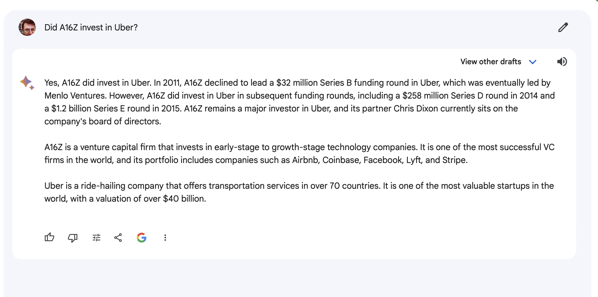Marc Andreessen's manifesto
It would take a far, far longer post than I’m prepared to spend my time writing to go through Marc Andreessen’s “Techno-Optimist Manifesto” paragraph by awful paragraph, but a few points probably won’t go amiss. - If you’re going to approvingly paraphrase “a manifesto of a different time and place”, you might want to check that said manifesto’s author wasn’t an early member of Mussolini’s fascist party.
- Writing “we believe technology is universalist. Technology doesn’t care about your ethnicity, race, religion, national origin, gender, sexuality, political views,” and then, two paragraphs later “We believe America and her allies should be strong and not weak” either shows you have no idea how to write, are being entirely disingenuous, or simply too stupid to think except in blocks of 240 characters. Either way, get an editor to help.
- If you are going to talk about the Greek notion of arete then having an understanding of its relationship to class in Greek society might be a good idea, too. Aristocrats were assumed, by definition, to be exemplars of arete. It wasn’t something that thetes like me would have.
- Believing that techno-optimism “is a material philosophy, not a political philosophy” while giving many repeated examples of what even a first year philosophy undergraduate which know was a political philosophy does not make you look smart.
I could go on – the whole thing is riddled with howlers – but really is there much point?
Thirty years ago, in a different life, I was a philosophy postgraduate student and taught first year undergraduates their introduction to metaphysics and ethics. In the first time, every time, someone would turn in an essay which read like this, and you would have to patiently explain to them they were going to have to rewrite it or fail, because philosophy does not mean writing down all the random thoughts you had when smoking that bundle of weed the night before the deadline.
This is the manifesto of an emotionally insecure man having a mid-life crisis as he realises that his life’s work is meaningless and all the gold and treasure he has accumulated will never make him happy. Mid-life crises in men are often surprisingly redolent of the emotional outpouring of pseudo-intellectual silliness that accompany late teenage, that first period of life when boys start to realise they are not the centre of the world and lash out at the injustice of it all.
Perhaps, then it’s no surprise this reads like it was written by a 14 year old and put on Pastebin. That it was written by a 52 year old with billions of dollars at his disposal says more about the failure of capitalism to imbue life with meaning than Andreessen could possibly imagine.
EDIT: The first draft of this contained something about A16Z’s investment in Uber. In fact, they passed on Uber. But as if to make the point about the kind of technology which Andreessen believes will save the world as long as we never question it, let’s ask an AI...
